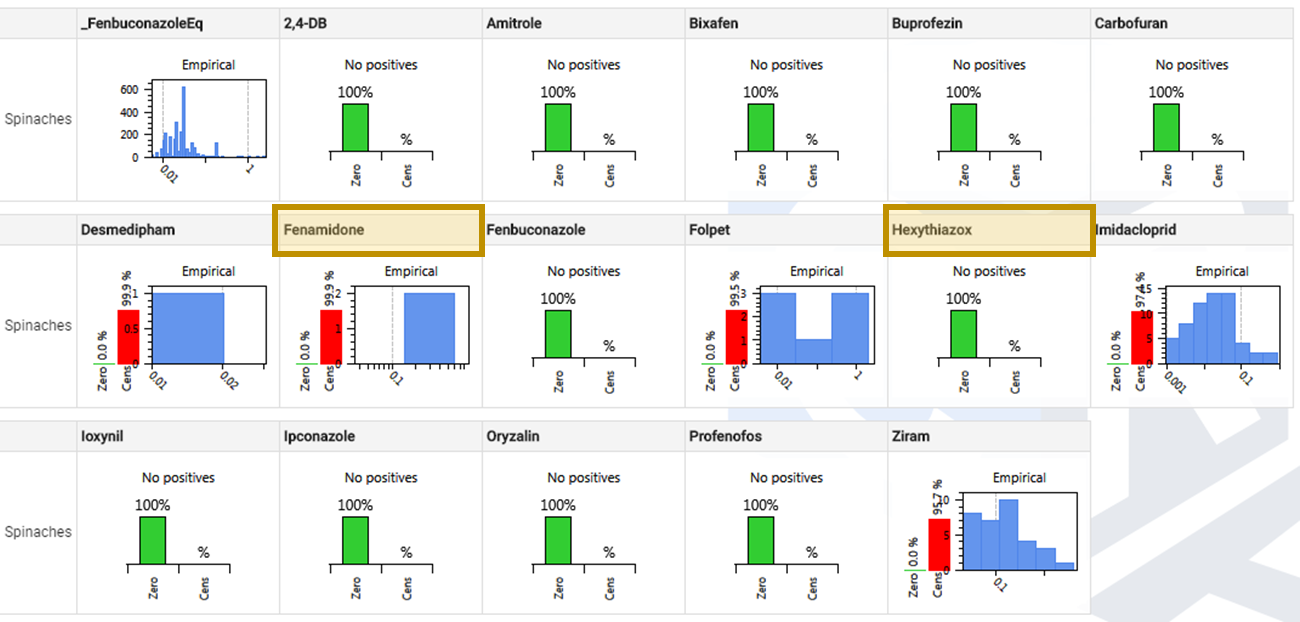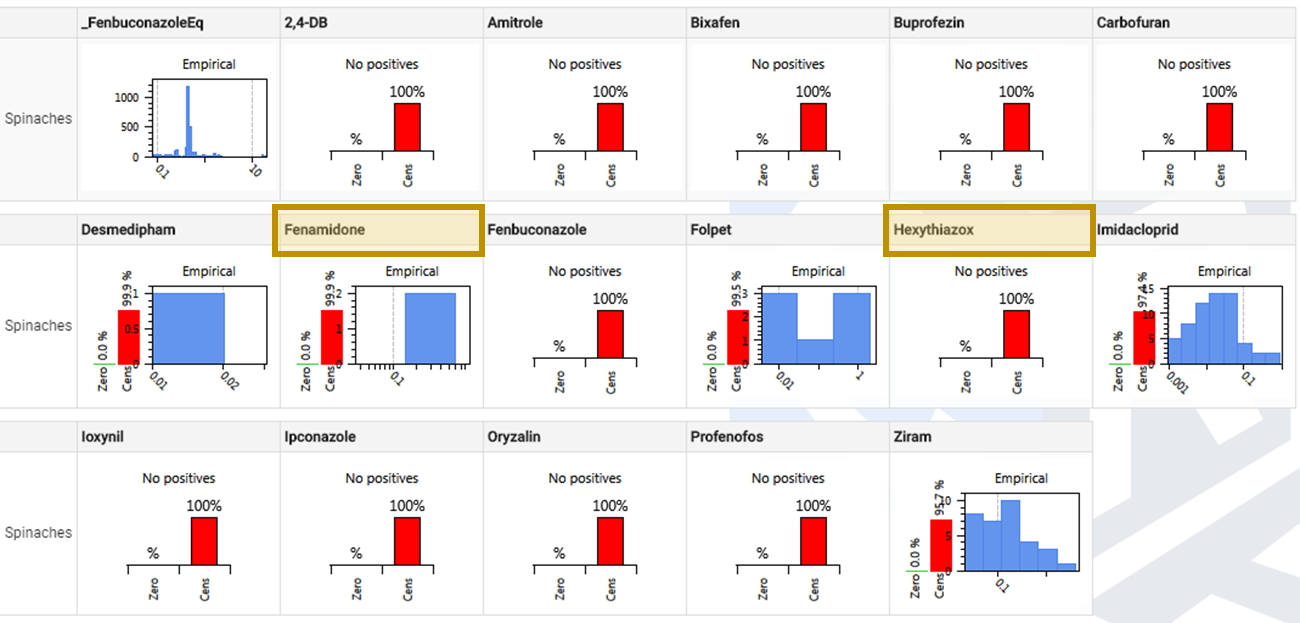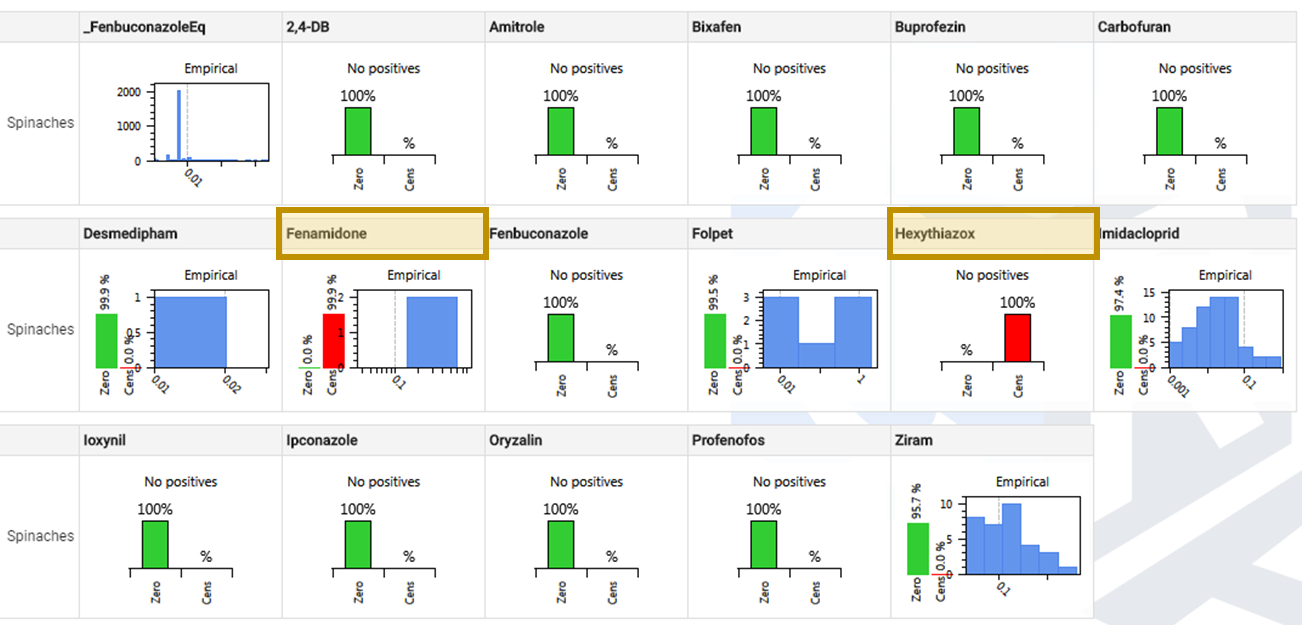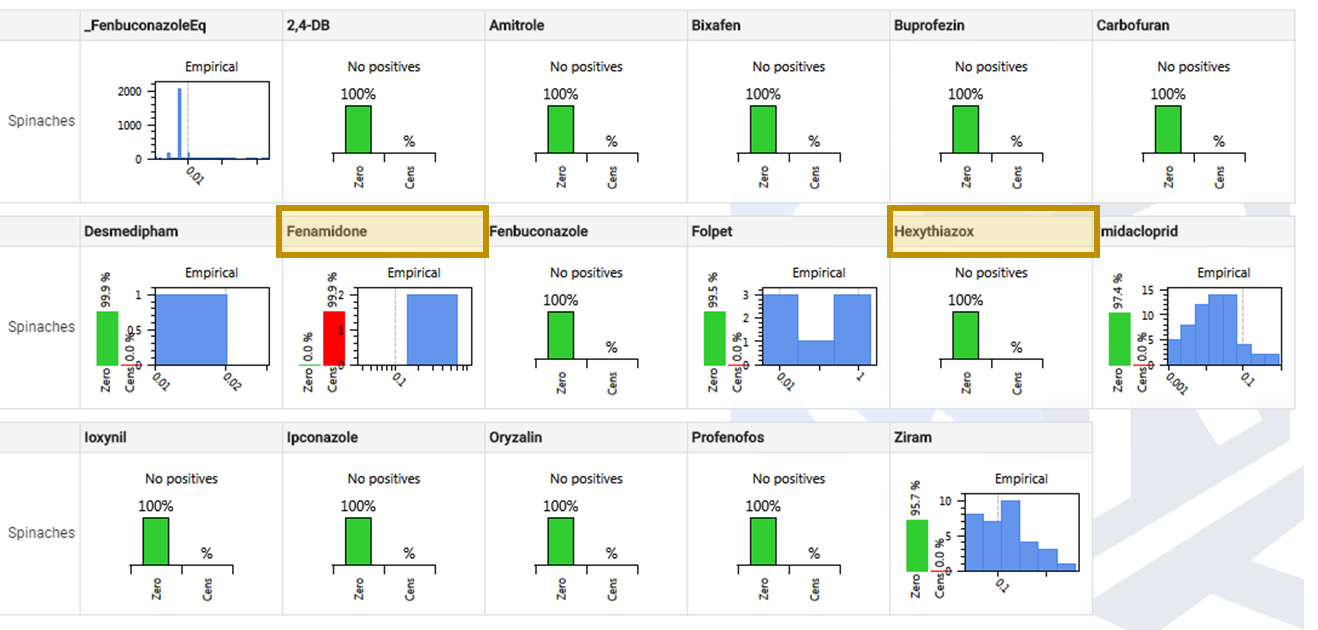Imputation
A complication in concentration modelling occurs when results are reported as below a certain limit. Different names may be used for such a limit, e.g. limit of detection (LOD), limit of quantification (LOQ) or the more general term limit of reporting (LOR). Results that are only reported to be below the LOD (non-detects) or below the LOQ (non-quantifications) are referred to in general as censored values or non-reports. For the purpose of exposure assessment it is relevant whether results are reported as a positive value or as a censored value (or more precise as a non-detect or non-quantification result). The value of the LOD or LOQ should always be known for the particular analytical method used.
Censored values are a very common phenomenon for some classes of substances like pesticides. Censored values can be handled by replacing them with a given value (imputation), or by incorporating them in a parametric model. In the imputation approach, censored values are replaced in simulations by any value between 0 and LOD, non-quantifications by any value between LOD and LOQ. For backwards compatibility reasons we maintained the imputation for values reported less than the LOR by any value between 0 and LOR where the LOR is equal to the LOQ or, when the LOQ is unspecified, the LOD.
Imputation also depends on the authorisation status of a substance i.c. whether the use of a substance on a agricultural crop is allowed or not.
In Figure 39 to Figure 42, the various scenarios are displayed. Two substances, Fenamidine and Hexythiazox are indicated with a brown box, these substances are authorized.
No imputation

Figure 39 Tier 1: Censored values are not replaced. For Fenamidine and Hexythiazox (brown boxes) authorized use is assumed.
Impute all censored values

Figure 40 All censored values are replaced by a constant x LOR. For Fenamidine and Hexythiazox (brown boxes) authorized use is assumed.

